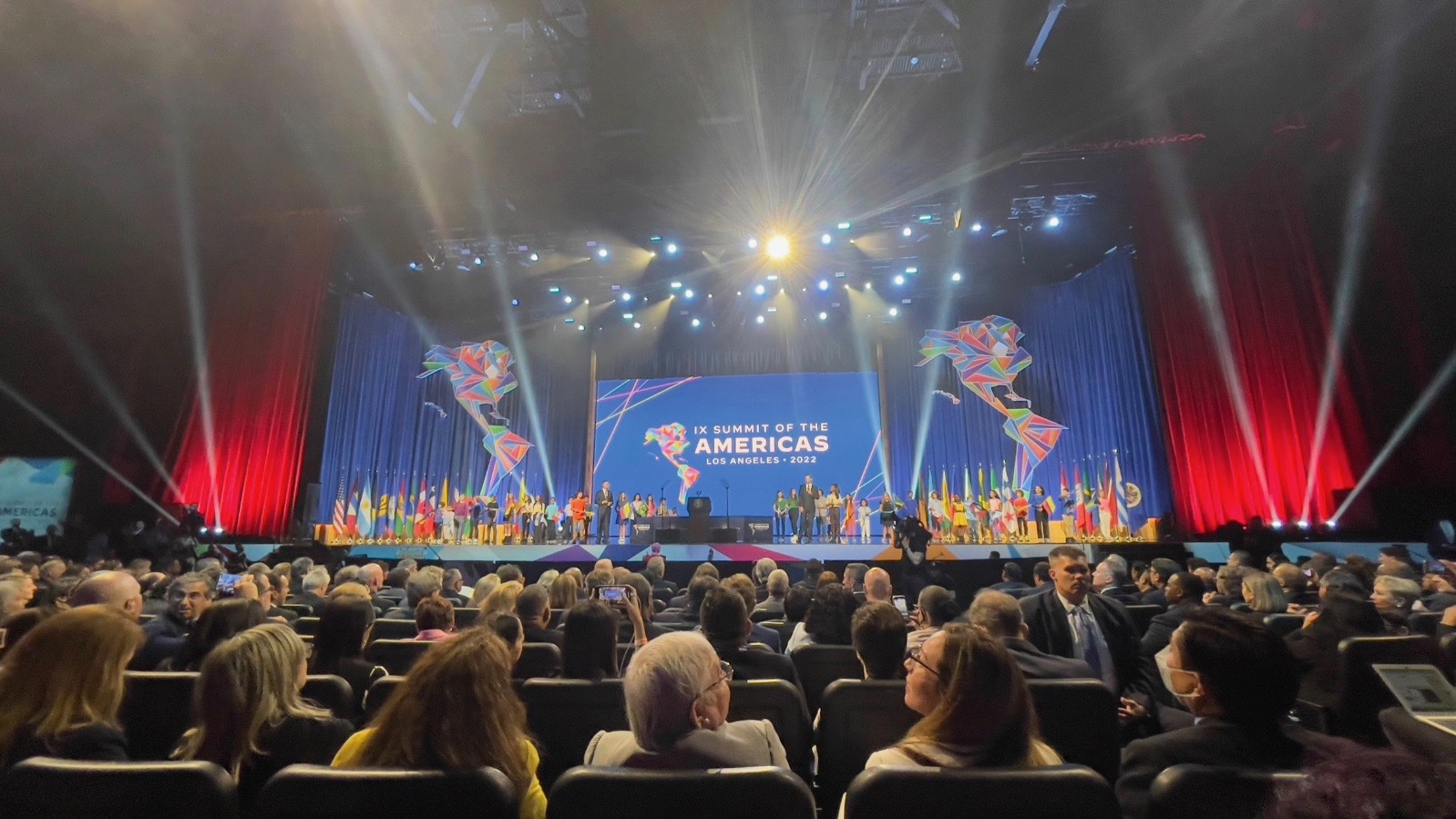The Ninth Summit of the Americas, which began on June 6 in the city of Los Angeles in California, US, concluded on Friday, June 10. The Summit had been a subject of controversy since the exclusion of Cuban President Miguel Díaz-Canel, Nicaraguan President Daniel Ortega and Venezuelan President Nicolás Maduro from the event was announced by the host, the US. The government of President Joe Biden received widespread criticism from across the region for not inviting these three countries to the conference.
Mexican President Andrés Manuel López Obrador (AMLO) was among the first to explicitly criticize the US policy to exclude countries with political ideologies different from its own, and soon, over a dozen Latin American leaders also followed suit and several announced that they would boycott the conference if all countries were not invited.
The threats of a boycott came true. The Summit saw the absence of multiple Latin American leaders, including AMLO, Bolivian President Luis Arce, Honduran President Xiomara Castro, Prime Minister of Saint Vincent and the Grenadines Ralph Everard Gonsalves, Prime Minister of Grenada Keith Claudius Mitchell, and Prime Minister of Saint Kitts and Nevis Timothy Harris, who skipped the event as it was not inclusive. Guatemalan President Alejandro Giammattei and Salvadoran President Nayib Bukele boycotted it due to US interference in their internal affairs. Uruguayan President Luis Lacalle Pou dropped out after testing positive for COVID-19.
Due to the absence of key leaders, the Summit not only saw its purpose defeated, which was to promote cooperation between the countries of the continent, it also marked a new decline in US power and influence over the region.
Leaders such as Argentine President Alberto Fernández, Prime Minister of Belize John Briceño, Prime Minister of Dominica Roosevelt Skerrit, Prime Minister of Saint Lucia Philip Pierre, Prime Minister of Trinidad and Tobago Keith Rowley, Prime Minister of Bahamas Philip Davis, Prime Minister of Barbados Mia Mottley, Prime Minister of Antigua and Barbuda Gaston Browne, Mexican Foreign Minister Marcelo Ebrard, and Bolivian Foreign Minister Rogelio Mayta condemned the US government’s decision to exclude Cuba, Nicaragua and Venezuela from American soil.
President Fernández, in his capacity as the president pro tempore of the Community of Latin American and Caribbean States (CELAC), regretted that not all countries were invited to the Summit. He criticized the over six-decade-long blockade of Cuba and toughening of the US sanctions against Cuba and Venezuela during the pandemic. He also questioned the role of the Organization of American States (OAS) in the 2019 coup d’état in Bolivia. He invited his US counterpart to abandon the policies that are harmful for the region and “open up in a fraternal manner in pursuit of common interests.” In this regard, he invited President Biden to join the next CELAC plenary meeting.
Meanwhile, PM Briceño, in his capacity as the current president of the Community of Caribbean States (CARICOM), described the Biden administration’s decision to not invite Venezuela, Nicaragua and Cuba to the Summit as “incomprehensible and unforgivable.” He highlighted the role played by Cuba in providing vital medical assistance to two-thirds of the countries in the hemisphere during the pandemic, and by Venezuela in ensuring energy security in small Caribbean countries like Belize. He called on the US President to lift the blockade against Cuba and the sanctions against Venezuela and Nicaragua and “build an America with social justice.”
Likewise, PM Skerrit said that the isolation of Cuba, Nicaragua and Venezuela disrespects the Democratic Charter of the Americas and by doing so, the US distorted the meeting’s mission, which is meant to build and promote democracy in the Americas. In addition to calling for the lifting of embargo, Skerrit called for the termination of Cuba’s unjust listing as a state that sponsors terrorism.
PM Pierre, PM Rowley, PM Davis, PM Browne, Foreign Minister Mayta and Foreign Minister Ebrard also called for the end of the illegal blockade of Cuba and the inhumane sanctions against Venezuela and Nicaragua. Foreign Minister Mayta, Foreign Minister Ebrard and PM Davis called for the refounding of the OAS.





